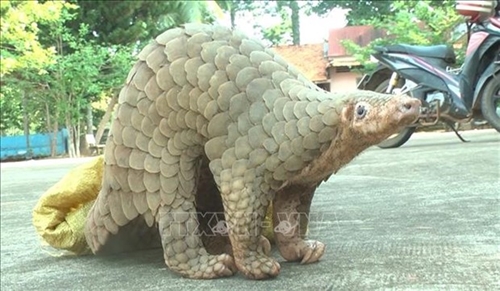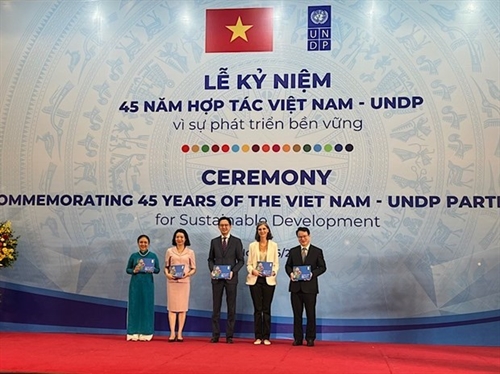Vietnam discovered 158 new species during 2021-2022, according to a report recently released by the World Wide Fund for Nature (WWF).
 |
| A Javan pangolin is handed over to authorities of Binh Phuoc__Photo: VNA |
During the period, scientists found out 380 new species of vascular plants and vertebrate animals in the Greater Mekong Sub-region, which includes Cambodia, Laos, Myanmar, Thailand and Vietnam.
Specifically, there were 290 new species of plants, 19 of fish, 24 of amphibians, 46 of reptiles, and one species of mammal.
Some of the newly discovered species in Vietnam are highly regarded by scientists worldwide, including Cat Ba begonia (Begonia catbensis) found on the limestone hills of Cat Ba National Park, frog species Quasipaa taoi on Ngoc Linh mountain - the highest peak in central Vietnam, and Intermedius sunbeam snake in a locality within the central Truong Son region of Vietnam.
This area is considered part of the Indo-Burma biodiversity hotspot, harboring globally iconic and endangered species such as tiger, Asian elephant, Sunda pangolin, and giant freshwater stingray. It is also a place where new species have been discovered since 1997, with a total of 3,390 species identified so far, including vascular plant, fish, amphibian, reptile, bird, and mammal.
The report also calls for urgent actions to reduce the risk of species extinction and end wildlife trafficking in Vietnam and the region.
To prevent the decline and extinction of species in Vietnam, the Biodiversity Conservation Partnership funded by the United States Agency for International Development (USAID) is promoting "rewilding" activities in national parks and nature reserves across the country. Through this initiative, it has conducted in-depth scientific analyses on certain animal species, particularly in Vietnam's Truong Son region, to gather necessary information for creating viable breeding populations that can be reintroduced into the wild after 10-15 years.
The partnership plans to establish rescue centers with the necessary conditions to care for priority species under captive conditions, particularly in central Vietnam.
In the near future, the Ministry of Natural Resources and Environment will work closely with relevant ministries, departments, localities, and organizations to fine-tune legal documents on nature conservation and biodiversity, and develop guidelines and directives on restoring natural ecosystems to contribute to biodiversity conservation, disaster prevention, climate change adaptation, and sustainable development.
The ministry will also continue enhancing the capacity of the State management agencies and the contingent of officials responsible for nature conservation and biodiversity, while building and carrying out mechanisms for coordination between State management agencies, political-social organizations, and development partners in the field.-(VNA/VLLF)









